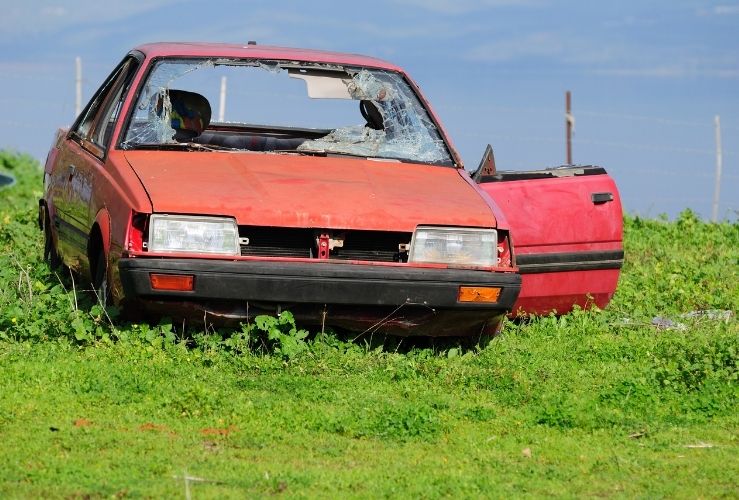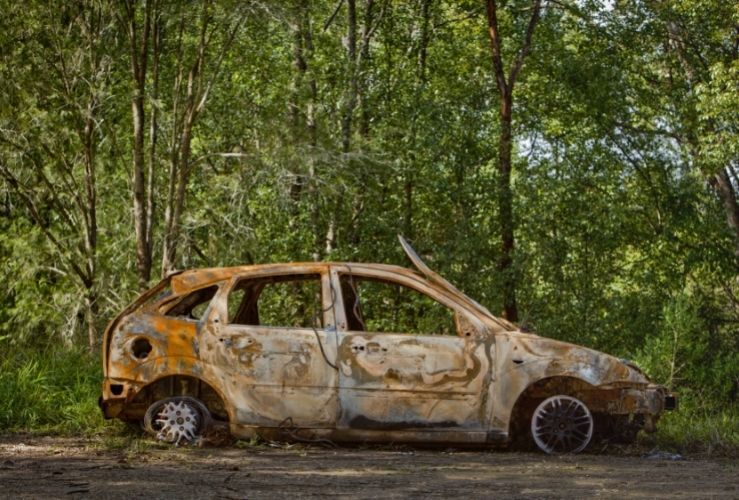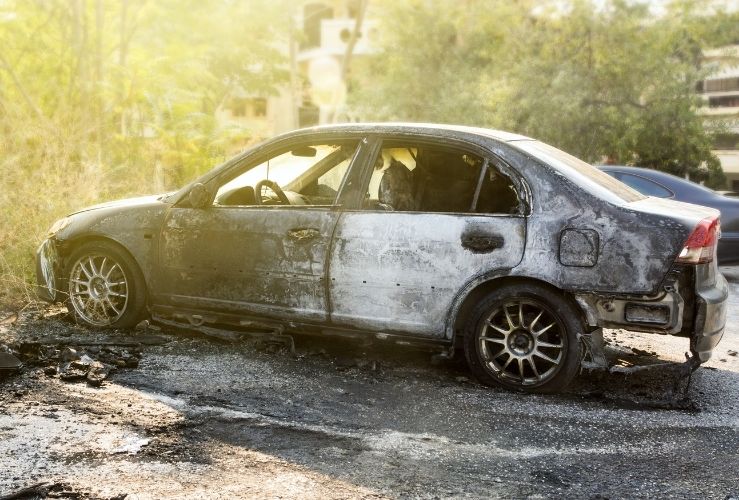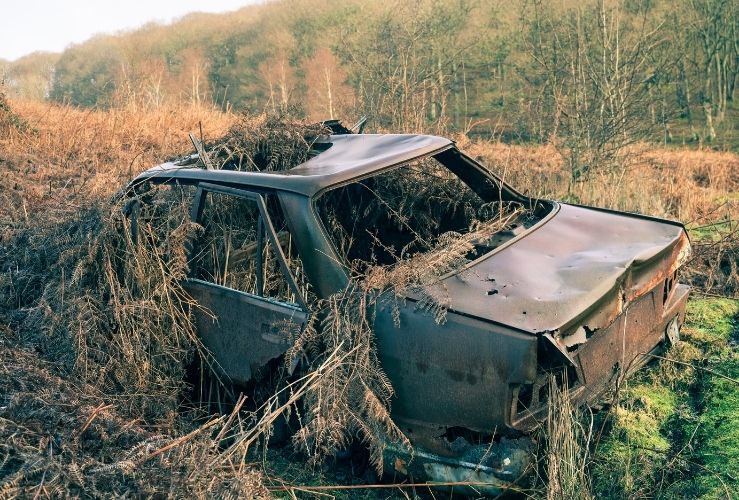Abandoned vehicles can be hazardous, an eyesore and reduce the quality of life of people living nearby. Here's what to do if you believe a vehicle has been abandoned in your community.

As many as two million vehicles in the UK reach the end of their life each year. Of these, many thousands are abandoned. Vehicle abandonment has long been a major issue: a Department for Environment, Food and Rural Affairs (Defra) report from 2002/2003 estimated around 299,000 vehicles were abandoned in those 12 months.
And it remains a big problem today.
Reporting an abandoned vehicle: what to do
If you believe a vehicle has been abandoned, you should report it to your local authority.
You can find the relevant authority be entering your postcode on the Gov.uk website:
Note: you should be sure - as far as possible - the vehicle is actually abandoned, rather than a "nuisance vehicle".
Read on to learn more.
There is no strict legal definition of an abandoned vehicle. But when a local authority deems a vehicle to be "abandoned" it becomes so.
The Refuse Disposal (Amenity) Act 1978 states that a vehicle is abandoned only:
“Where it appears to a local authority that a motor vehicle in their area is abandoned without lawful authority..."

Signs a vehicle may have been abandoned:
- No road tax (check the registration at https://vehicleenquiry.service.gov.uk/)
- Flat tyres or missing wheels
- Rubbish/detritus inside or around the vehicle
- Broken windscreen/windows
- Mould inside or outside the vehicle
- Missing number plates
- It has been "hot-wired" (started without an ignition key) - in this case you'll see wires hanging from the dashboard
- Vandalism or graffiti inside or outside
- Sudden appearance of vehicle in neighbourhood that no-one appears to claim
Never touch or enter a suspected abandoned vehicle. They may contain sharp objects and hazardous waste, and pose a fire/explosion risk.
If you find a vehicle on fire, keep your distance and call the fire brigade.
If it has been burnt out, do not approach or touch it: Burnt rubber and paint can be hazardous. 
In some cases, what appears to be an abandoned vehicle is actually a "nuisance vehicle".
It is important not to waste the time and resources of your local authority on a "nuisance vehicle" as far as possible.
- Poorly parked
- Causing an obstruction
- Caught up in a residential parking dispute
- Broken down
- No road tax
As a citizen, your interest in an abandoned car will likely end once you've alerted the authorities, but here is a brief overview of the legalities.
A key piece of legislation as regards abandoned vehicles is the Refuse Disposal (Amenity) Act 1978:
"(1) Where it appears to a local authority that a motor vehicle in their area is abandoned without lawful authority on any land in the open air or on any other land forming part of a Highway Road, it shall be the duty of the authority... [subject to provisions] ...to remove the vehicle.”
The full updated legislation can be viewed here
Abandoned vehicles according to Gov.uk:
"Councils and national park authorities (authorities) must remove abandoned vehicles from:
- land in the open air (including private land)
- roads (including private roads)
When removing a vehicle from land in the open air, authorities:
- cannot charge the landowner occupier
- must give the landowner or occupier 15 days’ notice that they propose to remove the vehicle
- cannot remove the vehicle if the landowner or occupier objects during the notice period"
The role of police
Police can also remove a vehicle under the Removal and Disposal of Vehicle Regulations 1986, if the vehicle is deemed to be:
- In breach of local traffic regulations
- Causing an obstruction
- Likely to cause a danger
- Broken down or abandoned without lawful authority

A motorist/registered car owner/criminal may decide to abandon a vehicle for a variety of reasons, including:
- Vehicle in poor condition and cannot be resold
- Vehicle of low value
- Difficulties in paying for upkeep: road tax, maintenance etc
- Being required to pay for scrappage (particularly in scrap prices have reduced)
- Accruement of parking, speeding and congestion charge fines etc - which may be more than the vehicle's value
- Vehicle used for criminal activity
- Registered owner's circumstances have changed: they've moved away, gone to prison, or died (in which case a relative may abandon the vehicle).
As mentioned, if you suspect a vehicle has been abandoned the best approach is to keep away from it and contact the authorities.




